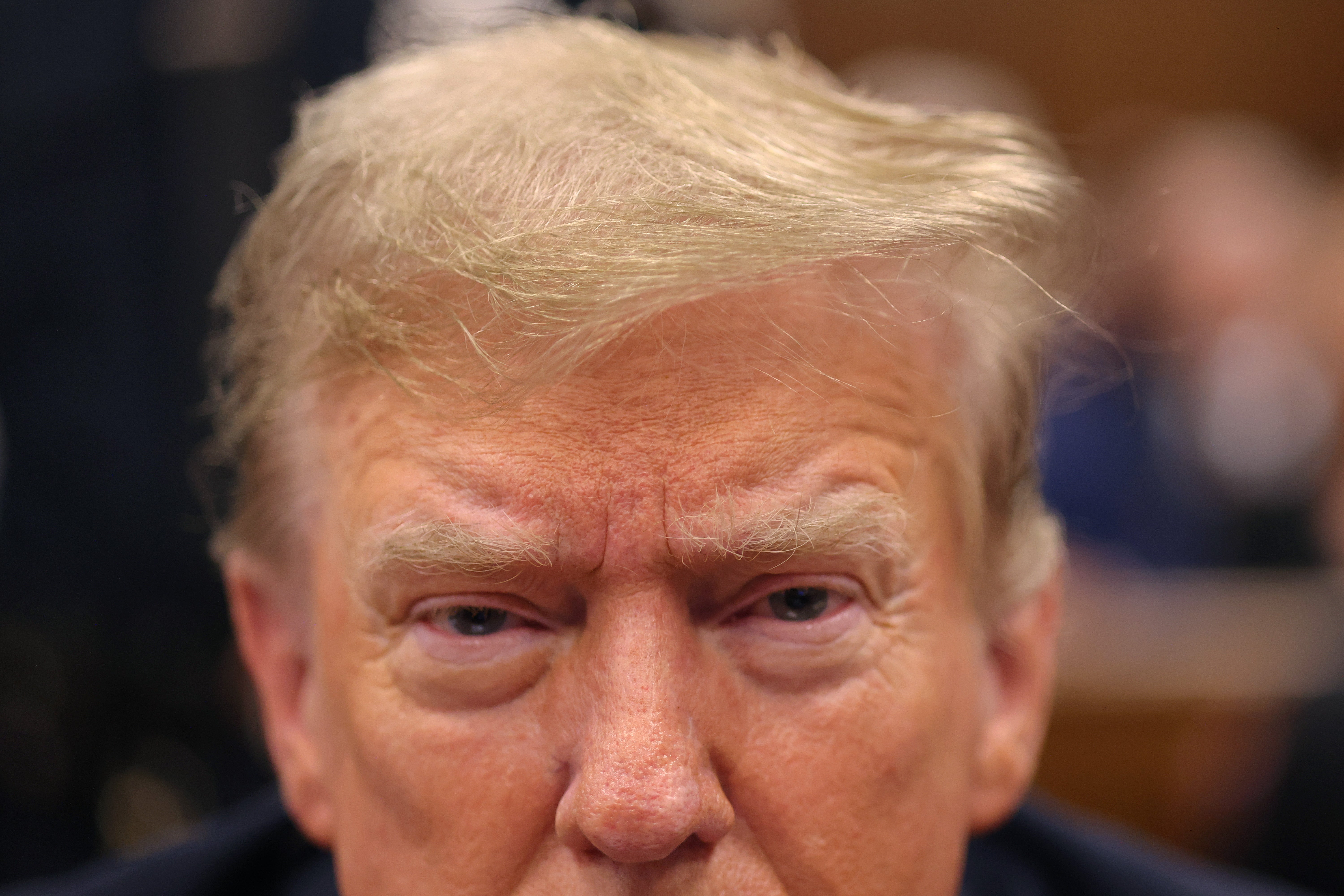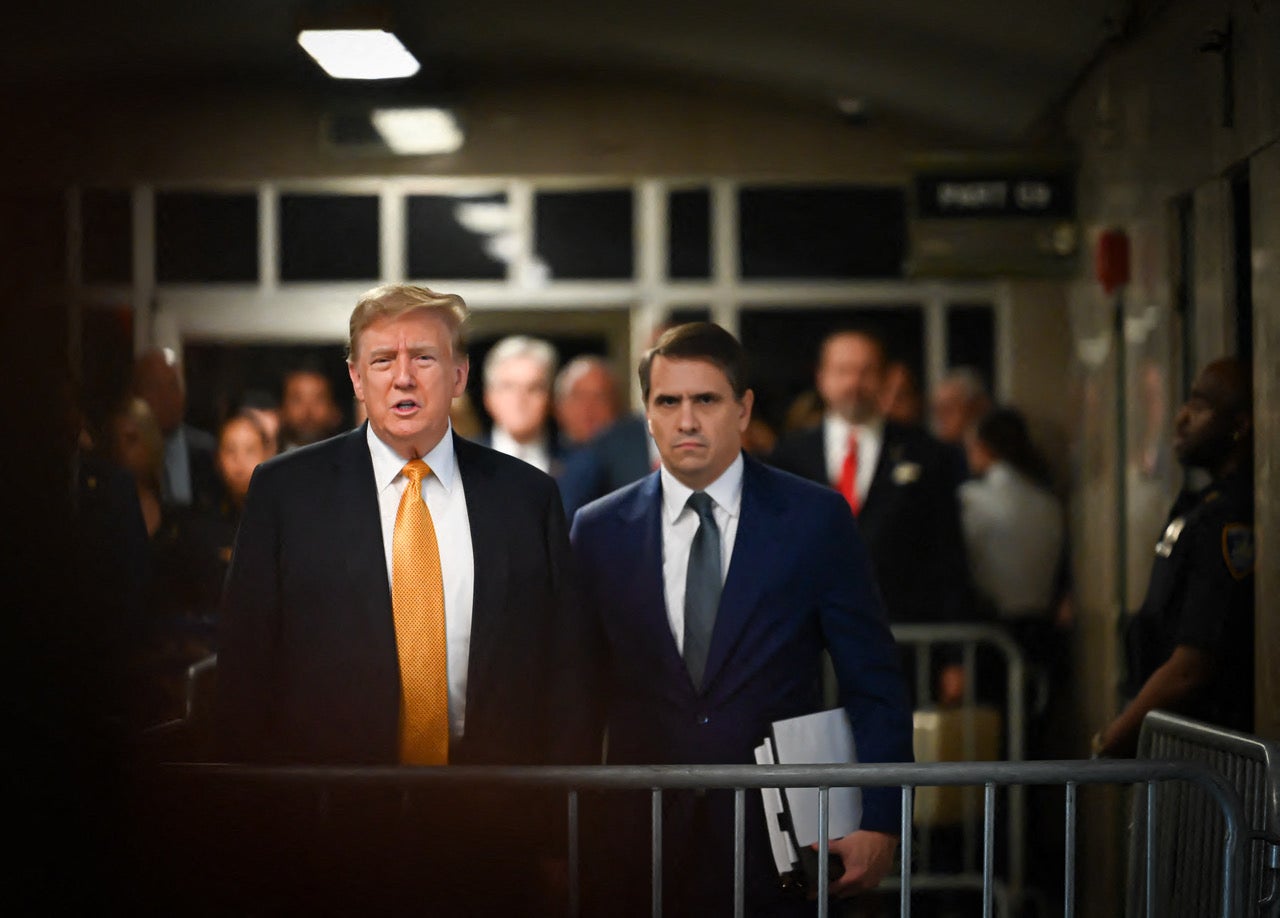What prosecutors need to prove for a jury to convict Donald Trump
Did Trump falsify business records? And did he do it to conceal or commit another crime? And which ones?
Your support helps us to tell the story
From reproductive rights to climate change to Big Tech, The Independent is on the ground when the story is developing. Whether it's investigating the financials of Elon Musk's pro-Trump PAC or producing our latest documentary, 'The A Word', which shines a light on the American women fighting for reproductive rights, we know how important it is to parse out the facts from the messaging.
At such a critical moment in US history, we need reporters on the ground. Your donation allows us to keep sending journalists to speak to both sides of the story.
The Independent is trusted by Americans across the entire political spectrum. And unlike many other quality news outlets, we choose not to lock Americans out of our reporting and analysis with paywalls. We believe quality journalism should be available to everyone, paid for by those who can afford it.
Your support makes all the difference.In 20 days over five weeks, after 22 witnesses and more than 200 documents, Manhattan prosecutors and defense attorneys have rested their cases in Donald Trump’s hush money trial.
The former president is charged with 34 counts of falsifying business records – misdemeanor crimes on their own, but “stepped up” to more serious felony charges that Mr Trump committed fraud with the intent to commit or conceal another crime.
Next week, New York Justice Juan Merchan will give jurors crucial instructions that will frame how they think about the testimony and evidence, and they will start deliberating as soon as 29 May, setting in motion what could potentially be the first-ever criminal verdict against a US president.
But to find him guilty of those charged felonies, jurors must find that prosecutors have proven, beyond a reasonable doubt, that Mr Trump not only falsified business records but did so in order to commit or conceal another crime.
Prosecutors will have to walk jurors through the Russian-nesting doll of coverups and crimes within crimes at the heart of a hush money scheme involving tabloid publishers, a Playboy model, an adult film star, White House aides and a disbarred lawyer: Mr Trump violated federal election law, by violating state election conspiracy law, by falsifying records.

State law says that “another” crime doesn’t necessarily need to have been committed, but prosecutors must prove that Mr Trump made an intent to commit one or to cover it up.
The prosecution has grounded the case in a relatively straightforward narrative: Mr Trump’s former attorney Michael Cohen paid $130,000 to Stormy Daniels to prevent her from speaking publicly about having sex with Mr Trump, and then Mr Trump approved a series of reimbursement payments to his “fixer” that were falsely labeled as “legal expenses” for a “retainer” that didn’t exist.
Those payments were allegedly covered up across 34 business records: 12 ledger entries, Cohen’s 11 invoices personally approved by Mr Trump and his associates, and 11 checks, most of which include Mr Trump’s Sharpie-inked signature.
That fraud, according to prosecutors, violated state law against a conspiracy to influence an election by “unlawful means.”
One of those “unlawful” means, according to the prosecution: Mr Trump conspired with this then-attorney to make what was effectively an excessively large, undisclosed, and illegal campaign donation of $130,000, then covered up in reimbursements spread out over 11 months in an attempt to hide the true nature of the payments. Under state and federal law, that kind of payment would need to be reported to the Federal Election Commission.
Again, prosecutors need only to prove that Mr Trump intended to influence the election through those unlawful means, not that he committed them himself.
“’Unlawful means’ doesn’t mean criminal. It means violation of the law,” according to Assistant District Attorney Matthew Colangelo.

Another one of those “unlawful means”: Mr Trump helped Cohen violate tax law by allegedly approving a payment plan that “camouflaged” reimbursements as income, “double dipped” for tax purposes, according to prosecutors.
It was even written down – a document shown in evidence and corroborated by Trump Organization accountant Jeffrey McConney shows handwritten notes from former chief financial officer Allen Weisselberg, doing the math to pay Cohen for reimbursing Ms Daniels, with additional bonuses and other payments, including more than $100,000 to account for the taxes owed on it, all spread out in $35,000 checks in 2017.
Mr Trump’s attorneys have argued that conspiring to influence the election was not unlawful – candidates seek to influence elections all the time, they said.
And they argued that there couldn’t be any conspiracy in 2017: Mr Trump already won the election.
“They could not possibly have promoted President Trump’s election because it already happened,” defense attorney Emil Bove argued on May 21. “The election was over. … These alleged tax crimes, they’re not unlawful means.”
